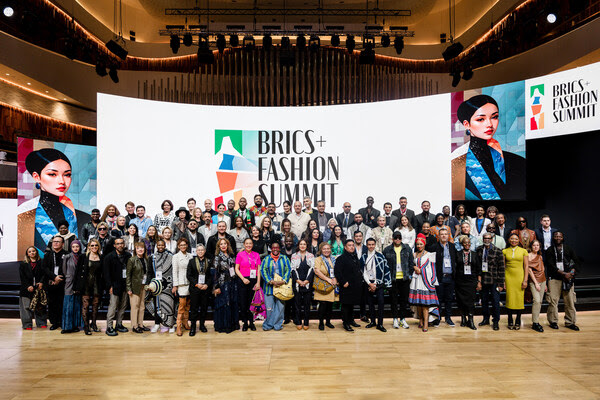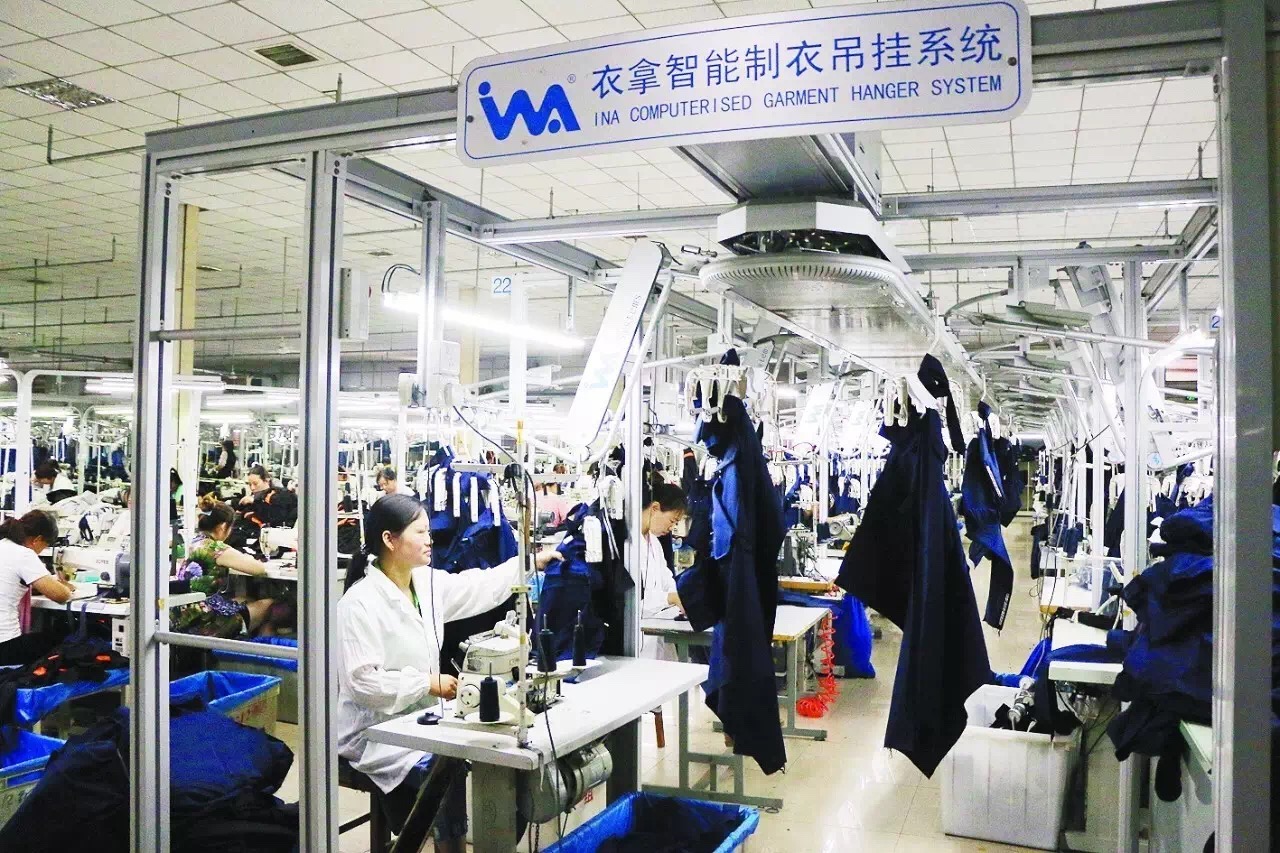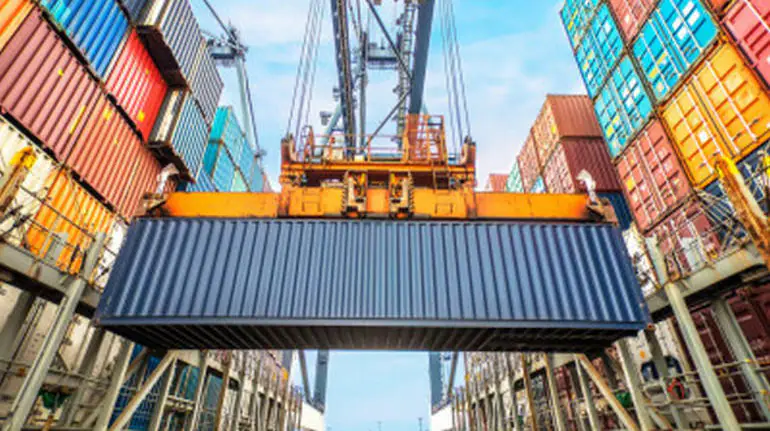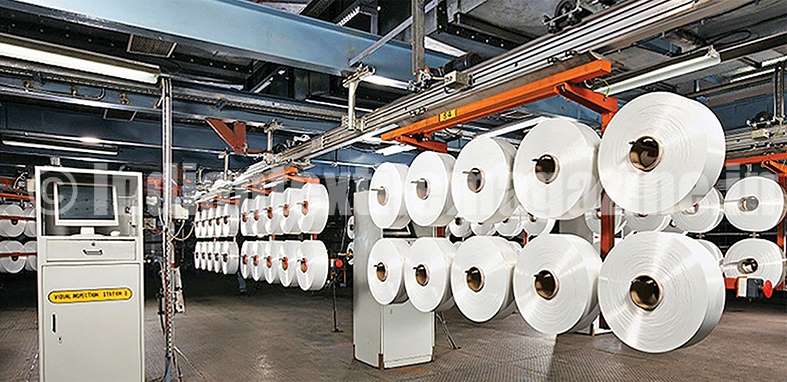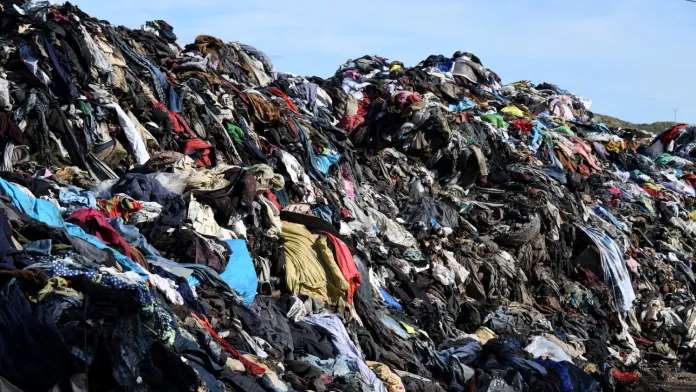FW
For the first time, RSG Automation Technics, located within the high-tech metropolitan region of Stuttgart, is set to present its unique specialised automation technology at the ITMA 2015 in Milan.
The company offers innovative textile machinery, which can help customers significantly reduce their process costs thereby increasing product quality and production volume. Backed by over three decades of experience, the company offers tailor-made solutions and customer support, from the basic concept preparation to assembly and start-up assembled in Germany. Besides, as per customer requests and ideas, software is developed and optimised at RSG.
Both fully and semi-automated machines are offered by RSG along with patented monitoring techniques for different sewing processes. Concepts include technical textiles, such as filters, felts and fleeces and confectioning optimisation in the domain of home textiles, as well as solutions for narrow fabrics of any kind, such as belts and straps.
www.itma.com
The best cotton in Africa is produced by Zambia and therefore, it has the potential to boost the local textile industry. Keeping this in mind the government has started promoting the establishment of textile factories that can create wealth and jobs for the locals since the two existing factories, Sakiza and Kariba, located in Zambia, are insufficient to promote the export of essential goods and services to other countries, points out Miles Sampa, the Deputy Minister of Commerce, Trade and Industry.
The government is also considering re-investing in Mulungushi Textiles to revive operations. The move is aimed at growing the textile industry that will reduce on the importation of goods and services. Sampa says the government is concerned with the low contribution of manufacturing industry to the country’s gross domestic product and the formal workforce. He further mentioned that the government would soon produce a list of goods and services that would be banned for import.
Gabriel Namulambe, Mpongwe Member of Parliament said exports would increase, which would in turn stabilise the Kwacha if the textile industry in Zambia is healthy. Mwalimu Simfukwe, Mbala Member of Parliament also said that the country’s economy would benefit from the ban on importation of some goods that can be produced in Zambia. www.mcti.gov.zm
The Trading Corporation of Pakistan (TCP) failed to attract textile mills or traders for cotton procurement as its sixth cotton tender did not fetch a single bid. Textile mills were reluctant to procure cotton from the state-run grain trader and there was no participation in the consecutive second tender announced by TCP to offload cotton stocks procured from the domestic market to facilitate farmers.
The Federal Board of Revenue imposed a 10 per cent advance tax on cotton procurement from TCP due to which textile mills and traders are reluctant to procure cotton from TCP. As per the tender condition, successful bidders are required to pay an advance tax at the rate of 10 per cent, which will be later adjusted in their annual tax returns.
TCP issued the sixth cotton tender on September 18, 2015, for the sale of 84,600 cotton bales and accordingly the tender was opened on September 30, 2015, at the corporation's head office. In response to TCP's sixth cotton tender not a single buyer or textile mill or trader participated in the tender.
In order to stabilise cotton prices in the domestic market, the federal government, in November last year, asked TCP to procure cotton from ginning factories to facilitate farmers. Accordingly TCP procured 96,000 cotton bales from ginners.
The UN General Assembly’s vision of adopting the ambitious and universal 2030 Agenda for Sustainable Development has been welcomed by the ITUC. However, the absence of clear and coherent obligations on member states to implement the agreed goals is a matter of concern.
Important pledges to end poverty and reduce inequality, promote decent work, social protection and gender equality is a part of the Sustainable Development Goals (SDGs). It also includes provision of quality education, public services, infrastructure and access to justice and the rule of law. However, means to ensure government accountability in implementing the UN agenda are weak and voluntary, as well as, commitments to implement the Goals through financing and progressive public policy are lacking.
ITUC General Secretary, Sharan Burrow said that the trade union movement supports the high ambition of the SDGs completely. However, the lack of concrete commitments to ensure that the goals would be met is deeply disappointing. Burrow added that the world cannot continue on a ‘business as usual’ path and that social development is crucial to addressing deep and growing economic injustice and to make it possible to transition to a low-carbon future through industrial transformation that sustains livelihoods and also the future of the planet. World leaders need to make a Global Deal to turn lofty aspirations into meaningful action, she added.
President of Global Union Federation Education International, Susan Hopgood, conveyed the trade union message to the UN in an address to the UN General Assembly.
A new regulation has been put in place by the government in Vietnam that specifies requirements on permitted limit of formaldehyde and azo dyes contents in textile products that are manufactured, imported and traded in Vietnam. A press release from SGS stated that the new draft circular will supersede circular No. 32/2009/tt-bct dated November 5, 2009 and becomes effective in February 2016. The earlier circular temporarily gave the regulated acceptable limits for the content of formaldehyde and content of aromatic amines, which can be released from azo dyes in reduction conditions in textile and apparel products.
The new circular states the same permitted limits of formaldehyde and azo dyes content in textile products. However, it further specifies requirements on the sampling methods. Updated international test method standards and provides relevant quality management requirements are used for this. Untreated yarn, untreated fabric, fabrics imported for processing export products and textile products in transit or stored in custom's warehouses are exempt from restrictions. Textile products temporarily imported for re-export and types of products made from textile materials used in industrial production are some other goods that are included in this.
A certificate issued by an accredited testing laboratory to ensure conformity in accordance to the regulation is required to be provided by all textile products that are imported, distributed and marketed in Vietnam.
The Trading Corporation of Pakistan (TCP) failed to attract textile mills or traders for cotton procurement as its sixth cotton tender did not fetch a single bid. Textile mills were reluctant to procure cotton from the state-run grain trader and there was no participation in the consecutive second tender announced by TCP to offload cotton stocks procured from the domestic market to facilitate farmers.
The Federal Board of Revenue imposed a 10 per cent advance tax on cotton procurement from TCP due to which textile mills and traders are reluctant to procure cotton from TCP. As per the tender condition, successful bidders are required to pay an advance tax at the rate of 10 per cent, which will be later adjusted in their annual tax returns.
TCP issued the sixth cotton tender on September 18, 2015, for the sale of 84,600 cotton bales and accordingly the tender was opened on September 30, 2015, at the corporation's head office. In response to TCP's sixth cotton tender not a single buyer or textile mill or trader participated in the tender.
In order to stabilise cotton prices in the domestic market, the federal government, in November last year, asked TCP to procure cotton from ginning factories to facilitate farmers. Accordingly TCP procured 96,000 cotton bales from ginners.
Finer micron wools are playing a pivotal role in women’s wear as consumers are seeking more environmentally acceptable solutions each season. Women are seeking sustainable solutions to both formal and informal dressing. The worsted wool industry lost considerable business in the 1980s when tailored women’s wear opted for synthetic fibers. However, runways, catwalks and fashion commentators in Paris, Milan, London and New York are witnessing strong evidence of wool’s rapid autumnal return to quality women’s wear.
Wool lost its market to women’s wear some 30 years ago. Initially, the woolen look was dismissed as chunky, tweedy and coarse. But now the woolen look is seen as easily lending itself to the trend for layering with sweaters, stoles, scarves and capes . A more refined tailored look is now a key trend for this autumn and drape is an essential element in the new look.
Several leading couture houses in Paris are sampling fine worsted qualities traditionally associated with men’s wear for their women’s wear collections. With the ongoing global uncertainty, it is impossible to predict the future direction of the wool market, but in recent months it has held up well, in part due to solid demand.
Textile and apparel imports under the Caribbean Basin Economic Recovery Act (CBERA) and under the HOPE and HELP Acts increased last year, according to the 22nd report titled 'Caribbean Basin Economic Recovery Act: Impact on US Industries and Consumers and on Beneficiary Countries', released by the United States International Trade Commission (USITC).
The value of US imports of textiles and apparel entering under CBERA trade preferences rose 12.7 per cent over the 2013 level to $389.8 million in 2014. Haiti was the leading CBERA supplier of US textile and apparel imports in 2014, accounting for over 90 per cent of such imports, the report said.
From 2013 to 2014, US imports of textiles and apparel from Haiti rose 10 per cent to $843.2 million, with virtually all US imports of apparel from Haiti entering free of duty under trade preference programmes. In 2014, US imports of apparel from Haiti under the HOPE/HELP Acts surpassed those under CBERA and accounted for over half of total US apparel imports that entered free of duty into the United States.
However, the overall effect of CBERA exclusive imports on the US economy generally and on US industries and consumers continued to be negligible in 2014. On the other hand, US industries supplying garment pieces, yarn, and fabric to CBERA apparel producers benefit from enhancements to CBERA, such as the Caribbean Basin Trade Partnership Act.
“Investment rose significantly in Haiti's export-oriented apparel sector, but Haiti is—and will likely remain—a small US apparel supplier compared to globally competitive producers in Central America and Asia,” the report said.
www.cbp.gov
Bangladesh is yet to bring subcontracting garment factories under a regulatory framework. These units violate the requirement for minimum wages and are not members of any recognised association. Out of 3,500 factories, about 800 are subcontracting units. Most of them are small and medium enterprises, doing subcontracting jobs for big factories. They remain outside the purview of the fire, electrical and structural safety assessment of Accord and Alliance. They do not follow the government’s wage structure, and their rates are only four and three per cent those of approved factories.
Maternity leave and allowances are not paid in 26 per cent of these non-member units. The performance of the non-member factories in terms of safety and other compliance issues as well as payment of wage and overtime bills is poor.
To complicate matters many of these units do subcontracting jobs for big factories, which are members of recognised associations like the Bangladesh Garment Manufacturers and Exporters Association (BGMEA) or the Bangladesh Knitwear Manufacturers and Exporters Association (BKMEA).
The government is working to bring discipline to these subcontracting industries and finalising a policy. First of all, units that do subcontracting have to be documented. They have to be induced to get themselves registered with apparel apex bodies.
Next month’s ITMA, perhaps the most important international showcase for textile and garment manufacturing technologies, will witness a line-up by Busi Giovanni, the leading Italian socks knitting machines producer. Michele Castagna, Export & Marketing Manager, Busi said that the brand is set to display its brand new MEDICAL PANTYHOSE 4.5", which boasts unique technical features and knitting performance for today’s medical-hosiery industry.
Twin Layer, Busi’s new model had recently bagged the European patent due to its unique technology. This model is a high production single cylinder sock machine with latch needles in the dial that enable it to produce technical sports socks with twin fabric. Besides, early last month the family owned company also announced the launch of two new medical hosiery knitting machines for large sized medical hosiery.
Busi’s aim of completing their range of models solely devoted to knitting class 1, 2 and 3 certified medical socks has prompted the company to launch the new MEDICAL PANTYHOSE (needle counts from 226 to 366) and MEDICAL TERRY PANTYHOSE (needle counts from 226 to 280) machines. Both these are available in a 4.5" diameter, enabling the production of large socks and pantyhose, said Castagna.

